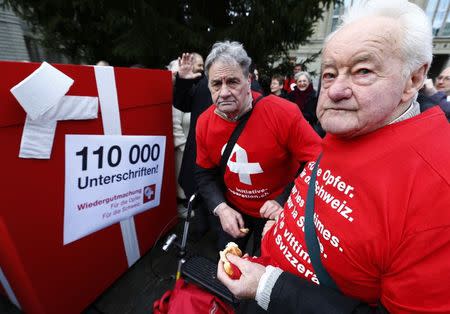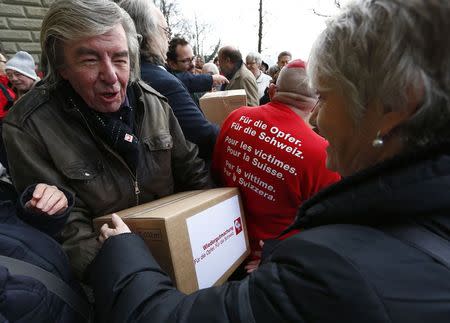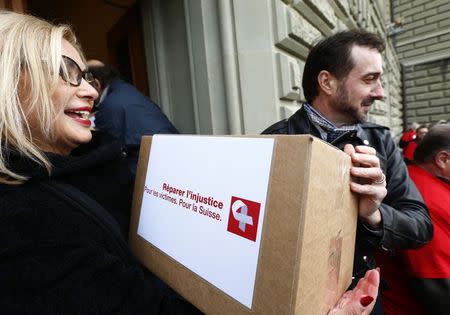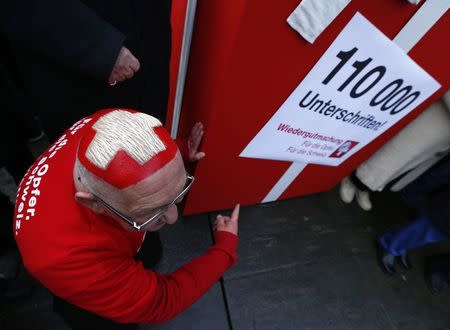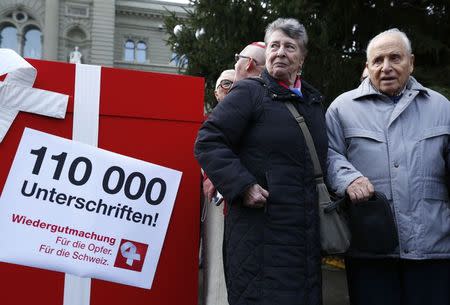Swiss campaign seeks to make amends for 'contract child' labour
By Ruben Sprich BERNE (Reuters) - A campaign seeking financial restitution for thousands of Swiss children once forced into foster families and used as cheap farming labour has garnered the necessary support to force a national referendum on the issue. Switzerland has been slow to come to terms with one of the darkest chapters in its history, when orphans and children from single-parent or poor homes were placed with farming families and used as cheap labour until they were of legal age. The practise continued well into the 20th century, advocacy groups say, but gradually died out with the improvement of legal protection for children in Switzerland and as farming became a smaller part of the affluent country's economy. Many of the so-called contract children, isolated from their families by authorities under public welfare, say they were physically or even sexually abused by foster families. Around 200 victims gathered in Switzerland's capital city Berne to formally deliver the 110,000 signatures of support that the so-called "Restitution package for contract children and victims of coercive measures of social welfare" initiative had collected over the past eight months. In Switzerland's system of direct democracy, any voter can trigger a referendum by collecting 100,000 signatures within 18 months. The campaign estimates roughly 20,000 children suffered from this and other coercive measures over several generations. The restitution initiative is seeking a 500-million-Swiss franc (325.80 million pounds) solidarity fund to make amends to the 10,000 or so victims estimated to still be alive. An independent committee would study each case to decide how much of the fund should be paid out. The initiative also calls for an academic appraisal of the coercive measures and for a public debate on the issue. Switzerland's government, which apologised to one-time contract children in 2010, will set a date for the vote once it has verified the signatures gathered by the initiative. It was launched in April by a non-partisan committee and has since gained the support of national and local politicians. "The restitution initiative is not a left-wing or a right-wing concern," Joachim Eder, a Swiss Liberal Democrat member of the upper house of parliament said in a statement released by the campaign. "It is a concern of socio-political importance, it is an initiative for the whole of Switzerland." (Writing by Joshua Franklin; Editing by Mark Heinrich)

 Yahoo News
Yahoo News 